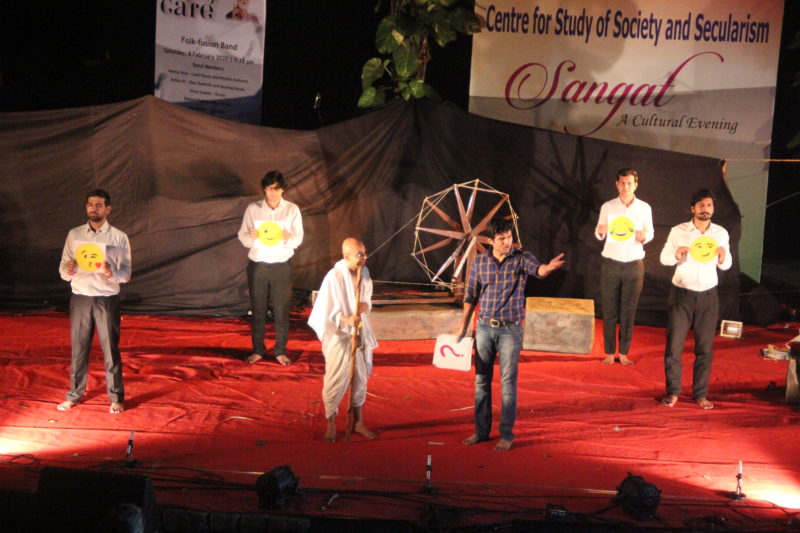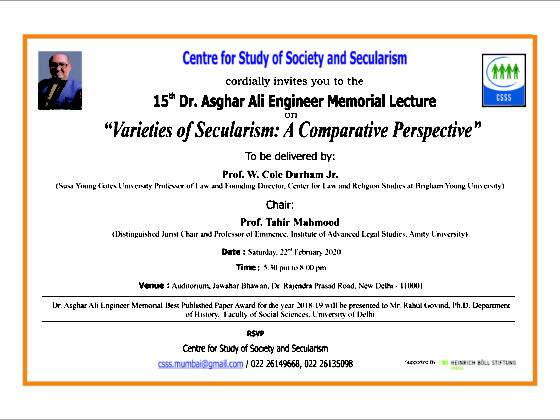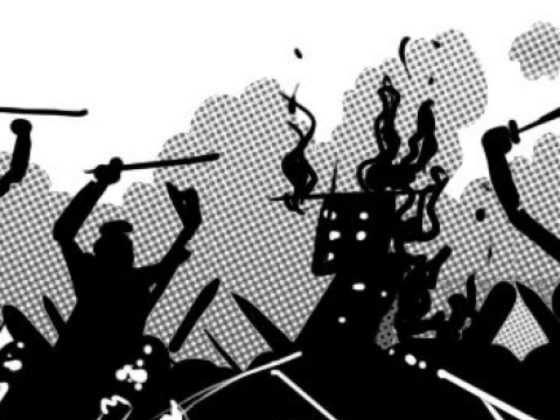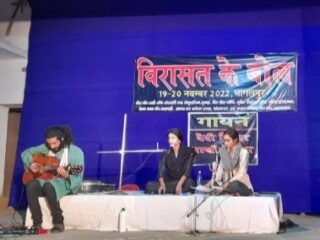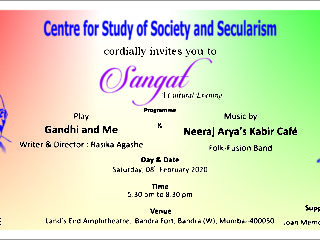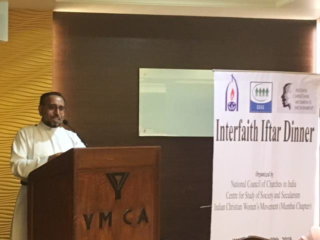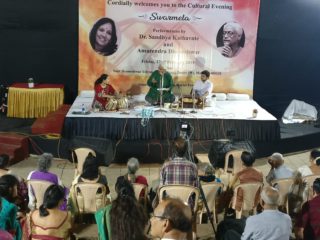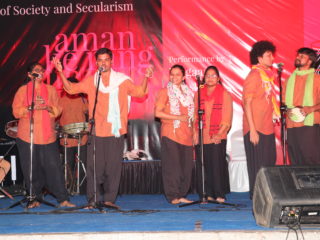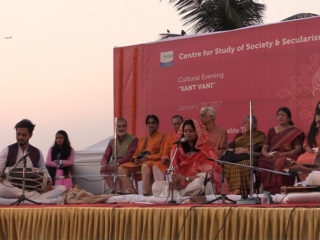On 8th February, the Center for the Study of Society and Secularism (CSSS) organised a cultural program, titled Sangat- an evening of culture at Land’s End Amphitheatre in Bandra. Through Sangat, we sought to revisit the message of Gandhi on his 150th birth anniversary and that of Kabir Das, a 15th century poet who is adored by Hindus and Muslims alike. It included a play by theatre writer-director Rasika Agashe titled Gandhi aur Mein and the folk fusion band Kabir Cafe who sang the Dohas of Kabir in a contemporary and modern style. The event was attended by an audience of 500, predominantly comprising of youth. CSSS is a non-profit dedicated to communal harmony and peace. Sangat was an expression and assertion of the CSSS ethos of interfaith tolerance, peace and love.
Gandhi aur Mein began with a simple premise- what would our beloved Gandhiji, if resurrected, think and do in our era of social media today? Would he use these tools to his advantage to challenge the current structures of power? Would he reject them completely? Or would he simply resort to Kunal Kamra style stand-up comedy to get our attention? This was the first public performance of the play that depicted a Gandhi who guides “Mein” (me), a stand-in for the common man, as he navigates social ills towards a path of reclaiming the revolutionary ideals of truth, non-violence and simplicity that Gandhi stood for. The play received a resounding standing ovation.
The sombre but humorous play was followed by Neeraj Arya’s Kabir Cafe. The band performed their electrifying music for an audience that was already familiar with their songs. The band playfully coaxed the audience into standing up and singing with their hands in the air, swaying much like the wind-swept palm trees in the amphitheatre. The sea-side breeze and Kabir’s poetry merged to create a relaxed and calming ambience. The performance was interspersed with brief bursts of interactions with the audience that had them engaged throughout the evening. CSSS hopes to continue to organise such events regularly in the future.
Together, the play and the performance served to communicate Gandhi and Kabir’s common message of compassion, humility, acceptance of the Other, and above all of love.

